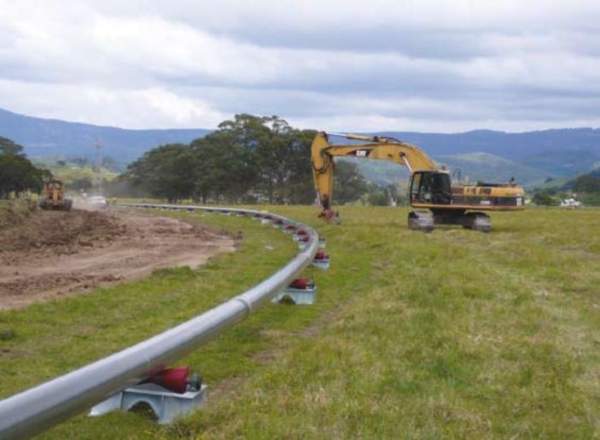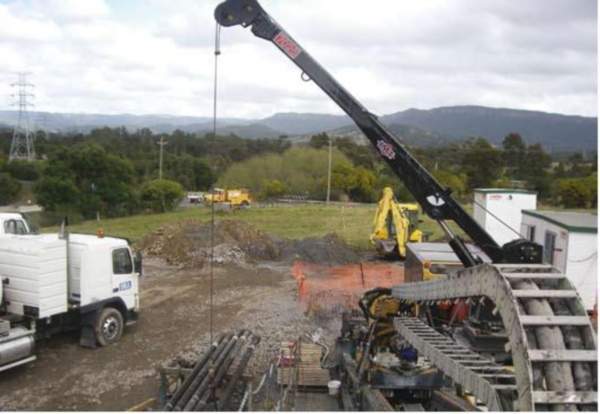The 435MW Tallawara combined cycle natural gas power station is situated in Wollongong, a city in New South Wales (NSW), Australia.
Commissioned in January 2009, the plant supplies power to 200,000 households. It is owned and operated by TRUenergy, a subsidiary of Hong Kong-based CLP Group.
Built with an investment of $430m, the plant is the first of its kind in the NSW region. It is one of most efficient power stations in Australia and emits 65% less greenhouse gasses compared to conventional coal-fired stations.
TRUenergy is planning to expand the existing station by constructing a second gas fired power plant, Tallawarra B. It will provide back-up power to the NSW region during periods of high demand.
The NSW Government approved Tallawarra B in December 2010 and it is currently in the planning stage.
Background to Tallawara
Tallawarra was originally a 320MW coal-fired plant that operated for more than 30 years from 1954 to 1989. Owned by Pacific Power, the plant was decommissioned to build a new combined cycle plant. Most of the plant’s buildings were demolished over a ten-year period.
Pacific Power completed the environmental impact study for the new plant in 1998. Post the receipt of the development consent from the Wollongong City Council, Pacific Power sold the plant site to TXU in 2003.
In 2005, CLP Group bought TXU and all its assets. In the same year, CLP re-branded TXU and its Australian operations as TRUenergy.
Plant details
Tallawara is equipped with a 260MW GT26 gas turbine, a 160MW STF15C steam turbine, a heat recovery steam generator (HRSG), a 420MW TOPGAS hydrogen-cooled electrical generator and ALSPA power control systems.
The plant functions on some of the structures of the old coal power station. It uses natural gas as fuel which is transported through a 763m and 272mm spur line from the Eastern Gas pipeline.
Water for cooling is sourced from Lake Illawarra and treated in a two staged-reverse osmosis electro-de ionisation plant.
Construction of Tallawara Combined Cycle Natural Gas Power Station
Construction of the plant commenced in November 2006. During initial site preparation works, tests were carried out for asbestos contamination from the old power plant. Under the remediation plan, approved and audited by the environmental protection agency, all the potential contaminated rubble was removed, buried and capped neatly in an on-site repository.
Plant equipment was delivered to the site in August 2007. The emission stack of the plant was installed in October 2007. The plant was synchronised to the grid in October 2008 after a 23-month construction period.
Around 600 contractors were deployed at the site during the peak construction period.
Power transmission
Power from the plant is transmitted via 132kV lines connected to the switching station maintained by Integral Energy. Transgrid has upgraded the Dapto substation in order to transmit additional energy during peak hours.
Contractors
France-based Alstom Power was the engineering, procurement and construction (EPC) contractor for the plant.
Site remediation services were provided by Tolco who was responsible for the demolition of the old boiler building and concrete chimneys.
Civil engineering, construction and infrastructural development works were carried out by CATCON. The company was involved in the construction of the main turbine foundation, HRSG slab, turbine tank, cooling water channels, intake structure, transformer area and the blast walls and other associated works.
Coastwide Civil laid internal road and constructed car parks, water and sewer systems, a sea-water canal, electrical switch-yard, gas receiving stations and security systems.
The main cooling water piping works were carried out by RPC Technologies on behalf of Alstom. RPC was responsible for the design, manufacture, supply and installation of the water pipes at the power station under a $30m contract.
The gas pipeline was constructed under a joint venture between TRUenergy and Nacap. It was laid by UEA under a contract from Nacap. LandTeam provided site-survey and consultation services for the same.
Alstom Power subcontracted OsmoFlo to supply the reverse osmosis plant.





